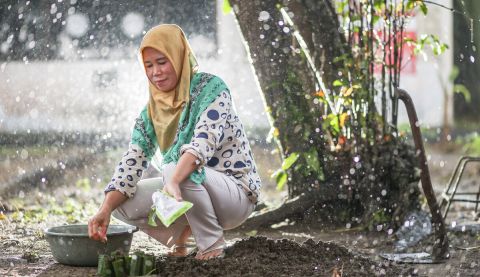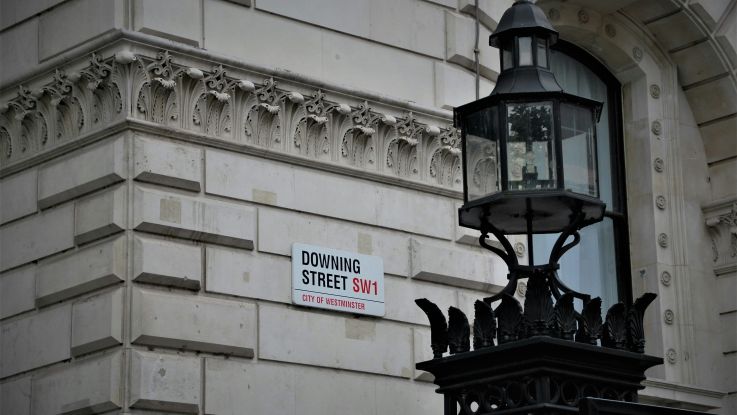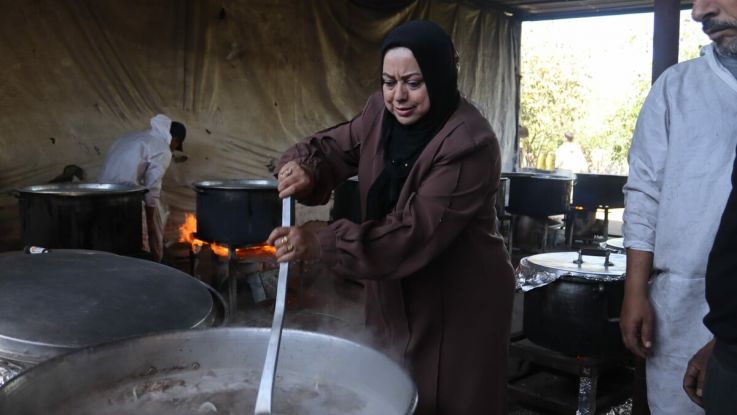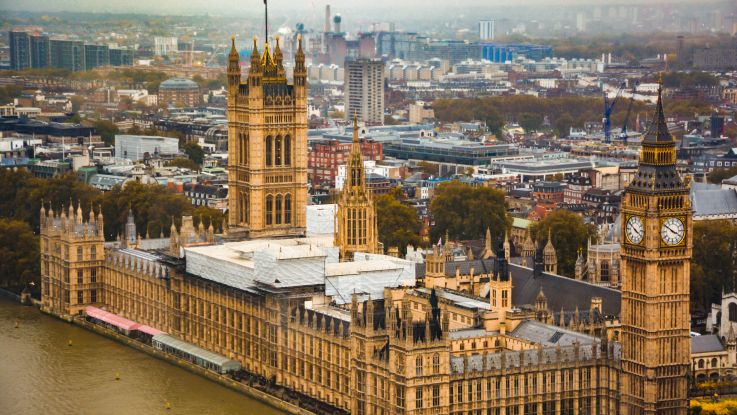Climate Action: What is a ‘feminist just transition’?
26 June 2024
We're demanding that the next UK Government put climate change front and centre of its policy-making, to support women and girls on the frontline of climate action.

Nur, from Indonesia, is a member of the Paniis Village Women's Association, a group who are tackling climate change by pooling resources to cultivate crops together. Photo: Bima Artoko/ActionAid
As London Climate Action Week coincides with the lead-up to the UK’s general election, we’re calling on the next UK Government to urgently prioritise action on climate change, including for those who are bearing the brunt of the climate emergency globally.
The climate crisis is a human rights crisis – and a feminist issue.
In our manifesto we set out why a feminist just transition is essential.
Why must tackling the climate crisis be a priority?
Some countries are more responsible than others for the crisis
Through the work we do at ActionAid, we can see the climate crisis worsening. And countries that have contributed the least to climate change are most acutely experiencing its disastrous consequences.
Southern activists have long called for recognition of the UK’s outsized and historic contribution to climate change – and thus, the UK Government’s responsibility to resolve the ongoing crisis.
Women are girls are disproportionately impacted
While the climate change affects us all, it disproportionately impacts women and girls in the global majority. For instance, during droughts or floods, women and girls face heightened risks of violence and undernutrition, and girls are more likely than boys to drop out of school.
Therefore, because of the way climate change impacts livelihoods, gender equality and human rights, the climate movement is also a social justice movement. It is being joined by feminists and women’s rights organisations all over the world, calling for rapid, transformative climate action.
Women are critical in the fight against climate change
While women are the hardest hit by the climate emergency, they are also key frontline responders. Women lead the response in their communities, bringing incredible expertise and knowledge to rapidly respond.
Yet their organisations are often undervalued and underfunded, and they are excluded from key decision-making spaces on addressing the impacts of climate loss and damage.
At ActionAid, along with others in the sector, we have continuously called for increased public finance to meet the needs of communities for the loss and damage they have experienced as a result of the climate crisis. To just meet the economic loss and damage created by climate change, close to $400bn is needed per year until 2030 – and currently we are far off track from seeing this made available.
The next UK government must partner with women’s rights organisations to achieve a just and feminist climate transition.
What role does the UK play in the climate crisis?
The UK is home to some of the largest corporations and big banks who are fuelling and financing the climate crisis.
While public finance is crucial for tackling climate impacts, we must also address the consequences of the actions of corporations, banking and private finance, whose activities are resulting in environmental harm and human rights abuses.
Our recent research showed that since the Paris Agreement, banks including HSBC and Barclays have pumped $3.2 trillion into fossil fuel businesses and a further $370 billion into unsustainable industrial agriculture.
These investments are contributing $400 billion per year to economic loss and damages in climate-stricken countries.
The cost is more than financial: women and girls are disproportionately impacted by the resulting climate damage.
It’s vital, then, that the next UK Government does not overlook the climate damages and associated human rights abuses caused by corporations, including banks.
It has a responsibility to regulate companies, including the financial sector, and end public subsidies to corporations whose activities harm people and the planet.
Our demands to the next UK Government
What the world needs is political leadership to stop the climate emergency.
That’s why we’re calling on the next UK Government to put feminist climate justice at the forefront of its agenda. We want to see tangible actions, including:
- An increase in funding to help climate-impacted countries adapt to climate change and address losses and damages, particularly by funding women’s rights organisations who are leading the response to climate change.
- A rapid scaling-up of the UK’s domestic action on climate change, to achieve net-zero as fast as possible.
- The introduction of legislation to ensure UK companies (including banks) prevent environmental harm and human rights abuses taking place as a result of their activities. We also want to see an end to public subsidies for fossil fuel companies and companies that carry out harmful agricultural practices.
Please join us today by signing our open letter to the next UK Government, calling for immediate action and a just, feminist climate transition.



